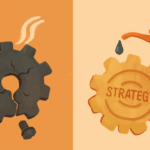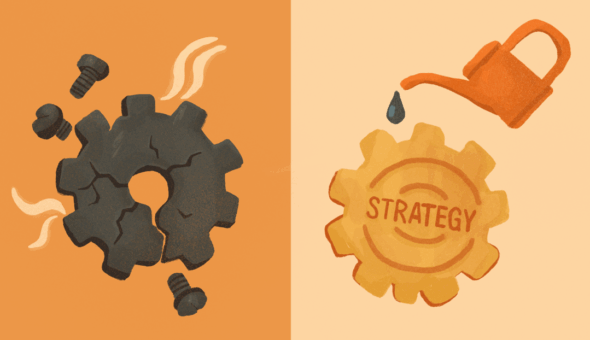In the world of higher ed marketing and branding, one star player often doesn’t get the spotlight it deserves: licensing. Think of it as the unsung hero in the marketing playbook, a tool that can significantly amplify an institution’s brand identity and reach. A tool that is priceless but cannot thrive without care and attention.
So what is licensing? In simple terms, licensing is when an institution allows third parties to use its logos and trademarks. This could range from placing logos on apparel and merchandise to branding food and beverages. By allowing retailers and other vendors to place your institutional trademarks on a product, you extend your brand’s presence in the marketplace and give opportunities for your campus community to show — and share — their pride.
Why Licensing Works
So, why is licensing such a big deal in institutional branding? The answer lies in visibility and connection. Licensing allows universities to put their brand into everyday life, transforming it from an abstract concept into a tangible experience. When a student dons a hoodie emblazoned with their university’s logo, or when a supporter sips coffee from a mug bearing the institution’s mascot, the brand becomes part of their daily narrative. It’s a subtle yet powerful form of marketing that fosters a sense of belonging and pride.
Licensing can also tap into the power of nostalgia and tradition. Alumni, for instance, cherish items that remind them of their alma mater, strengthening their lifelong connection to the university. This emotional connection is a potent tool in institutional branding, as it turns alumni into brand ambassadors who proudly showcase their affiliation and, in turn, market the institution.
The Power of Partnerships
Recently, my institution saw first-hand the power of alumni as brand ambassadors. This fall, the university dipped its toes into consumables licensing by launching a branded beer and a branded barbeque sauce. The New Realm beer — dubbed ODU Golden Ale — is in cans emblazoned with the ODU Monarchs logo and is sold in innovative packaging that turns the entire section into a branded masterpiece. The partnerships earmark a portion of each sale toward funding scholarships for ODU students.
The beer launched in early fall and was New Realm’s most successful new beer launch in company history. Alumni flocked to the brewery on opening weekend, sharing pictures of themselves in ODU gear with ODU Golden Ale in hand. In just eight weeks, more than 2,500 cases were sold, generating $5,000 for student scholarships. It’s available at more than 100 locations regionally and has been sold out every time I’ve visited my local wine and beer shop.
For those not inclined toward alcohol, alumnus-owned Dirty Buffalo (a local barbeque chain) launched Big Blue Q (Big Blue is the ODU mascot). As part of the launch event, the closest location hosted our football coach’s pre-game show, during which he taste-tested the sauce. A launch party drew a crowd of alumni, and the alumnus is so excited about the partnership that he is purchasing billboards around our city promoting the product — and the university.
Also in the works are a line of vintage gear designed to tap into nostalgia, a high-end clothing line geared toward alumni and a very secret “consumable” that would be the first-of-its-kind licensed in the country.

How to Guarantee Licensing Success
That said, successful licensing requires more than just slapping logos onto products. It demands a strategic approach. This begins with understanding the institution’s brand essence — what it stands for, its values and its unique story. This understanding informs the types of products that are developed, ensuring they align with the brand and resonate with the target audience.
A strategic licensing manager will understand the brand she or he manages and will know that what works at one institution may not be successful at another. There is no one-size-fits-all product list.
For some schools, licensing a beer would never fly. But another school might find that wine, bourbon and cigars are a good fit. Any good leader knows the solution: ask questions, hold focus groups with students and alumni and prowl similar schools to learn what has been effective elsewhere.
Licensing is a multifaceted tool in the institutional marketing arsenal. It’s more than just a revenue stream; it’s a way to enhance brand visibility, engage with audiences, and create lasting emotional connections. When approached strategically and creatively, licensing can elevate an institution’s brand to new heights.
So, the next time you see a piece of branded merchandise, remember the strategic thought and effort behind it — it’s not just a product, it’s a piece of the institution’s story.







